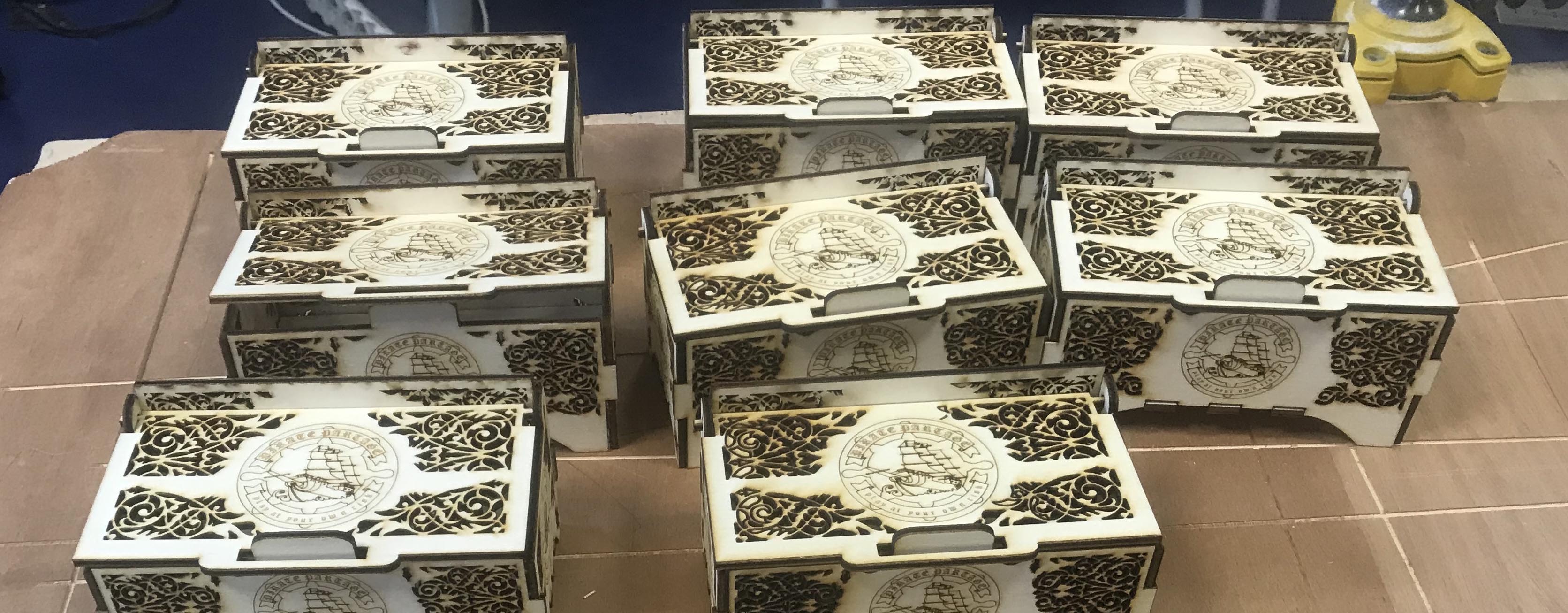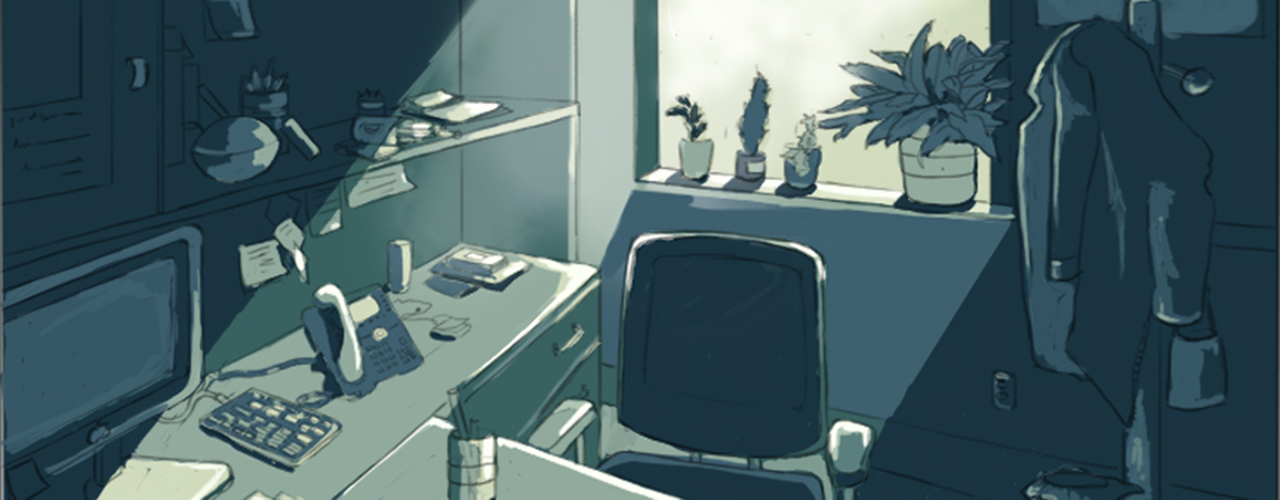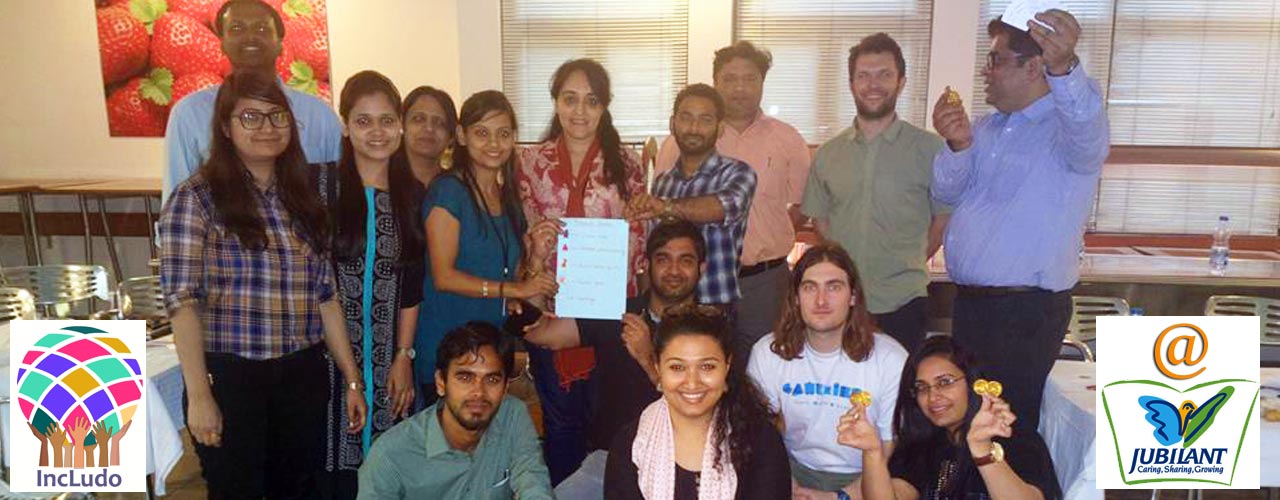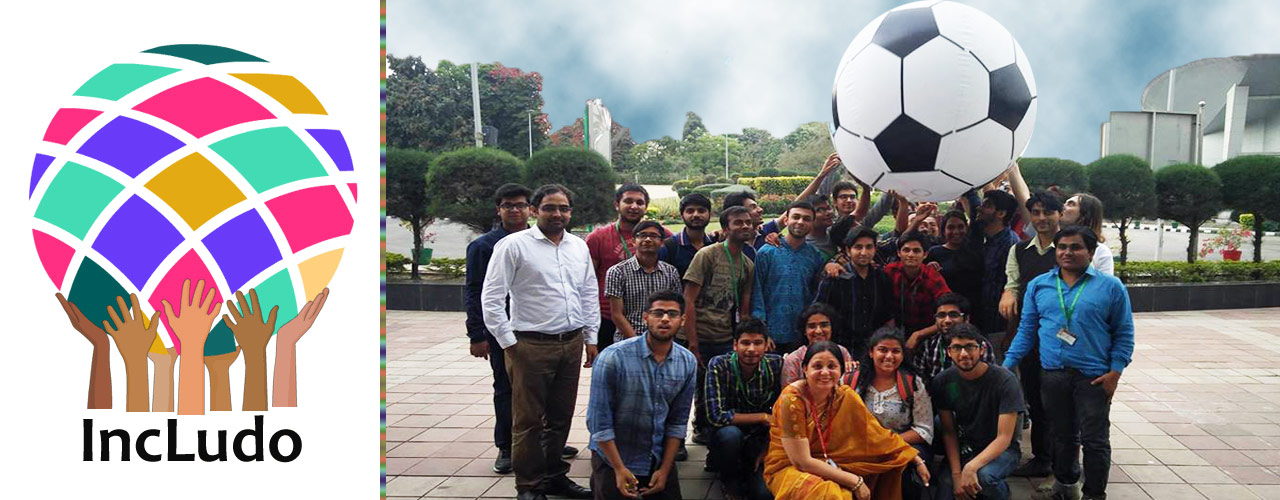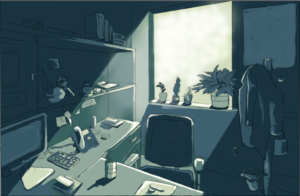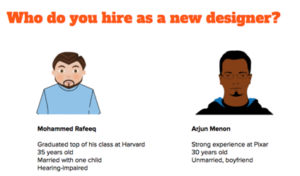Games to Promote Diversity and Inclusion in the Workplace
The IncLudo Project
Despite the continual progress made to improve diversity in the workplace, we still have a long way to go to integrate all members of our society into the workforce. This is global challenge, and as the world’s largest democracy, India is no exception. India has the lowest participation rate of females among similar emerging economies, with only 29% of women over the age of 15 working. Furthermore, Muslims constitute 14 percent of India’s population but only one out of 25 university student is a Muslim and their share in bureaucracy is just 2.5 percent.
Can games be used to promote diversity and inclusion in the workplace? We believe that believe that games are the ideal means to teach the benefits of inclusivity and contribute to lasting behavior change. Games allow people to explore different possibilities, to discuss stereotypes and fears in an open manner, and to reconsider their position from another point of view. And most of all, they’re fun!
The IncLudo project is a collaborative project of ZMQ Development (Delhi) and the CRI (SCIRE Association, Paris), supported by the European Instrument for Democracy and Human Rights (EIDHR). The project is three years long. In the year (2016), we dreamed up many game designs, and tested 12 prototypes with out target audiences in India. In the second year (2017), we selected 4 of the designs and produced games to be used within workshops with target organizations. The third and final year (2018) is dedicated to running workshops with these organizations and monitoring what changes to policy and company culture will result.
IncLudo is imbued philosophy of openness: open source, open data, and open process. Not only are the tools themselves free to use, modify, and redistribute, but all information gathered in the action are available to the public for analysis and discussion.
Our Games
 Pirate Partage is a physical game about group communication overcoming handicaps. In Pirate Partage, four players sit around a table. Each of them is a pirate, and their hard life has lead to difficult handicaps. One pirate has a double eye-patch, and can’t see. Another pirate can’t talk. Another can’t hear (too many cannon blasts). And the last pirate only has a hook for a hand. Together they must split up their treasure in a limited amount of time. To make matters more complicated, each has to get another pirate’s help to move the treasure around.
Pirate Partage is a physical game about group communication overcoming handicaps. In Pirate Partage, four players sit around a table. Each of them is a pirate, and their hard life has lead to difficult handicaps. One pirate has a double eye-patch, and can’t see. Another pirate can’t talk. Another can’t hear (too many cannon blasts). And the last pirate only has a hook for a hand. Together they must split up their treasure in a limited amount of time. To make matters more complicated, each has to get another pirate’s help to move the treasure around.
In workshops, Pirate Partage is a way to enter in discussions about handicaps within an organization. What are the challenges to bringing in people with handicaps, and how can the organization adjust to accommodate them?
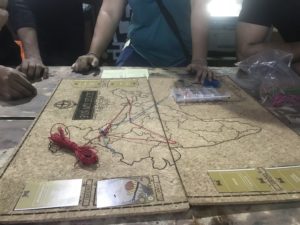 Pin My State is a simple and fast trivia game to learn about the wealth of diversity between the many states and territories of India. In the game, each team competes to answer trivia questions related to an Indian state or union territory, on subjects like movies, politics, literature, food, and others. As they answer correctly, they gain ingredients for their recipes, and get to place pins of their color into the cork playing board, which they later tie together with thread.
Pin My State is a simple and fast trivia game to learn about the wealth of diversity between the many states and territories of India. In the game, each team competes to answer trivia questions related to an Indian state or union territory, on subjects like movies, politics, literature, food, and others. As they answer correctly, they gain ingredients for their recipes, and get to place pins of their color into the cork playing board, which they later tie together with thread.
Within a workshop, Pin My State can be used to challenge stereotypes about the character of people from each state. It also serves as a means for the group to discover what geographical diversity is present within the group, and what is missing.
Another Day is a visual novel exploring diversity and inclusivity in the workplace. In Another Day, the player is a HR director at a company in Delhi. They must make ethical decisions in order to maintain a productive and inclusive atmosphere within their workplace. These decisions must balance the desires and fears of employees that differ on issues around sexual orientation, clothes, religion, food, etc.
Another Day is played ahead of and between workshops in order to sensitive players to common issues and arguments that come from embracing a diverse workforce. There are also role playing exercises that use characters from Another Day as a way to work through workplace conflict.
Hired is a mixed cooperative and competitive game about the power of bias in the hiring process. In Hired, the players represent a team of managers deciding on which candidates to hire for important positions in their organization. In addition to the CVs of the candidates, they each have access to information known only to them, that could influence the decision. However, each player also has a secret bias, such as not wanting to hire women, or not wanting to hire older people, etc. The players decide which information to share, to not share, or to lie about, in order to match their bias. But if another player detects their bias, they can be called out and their power diminished.
Playing Hired is a a great way to introduce the concept of implicit bias and the wealth of research results that document it. Within workshops, we discuss concrete ways in which organizations can change their hiring processes to account for bias.

